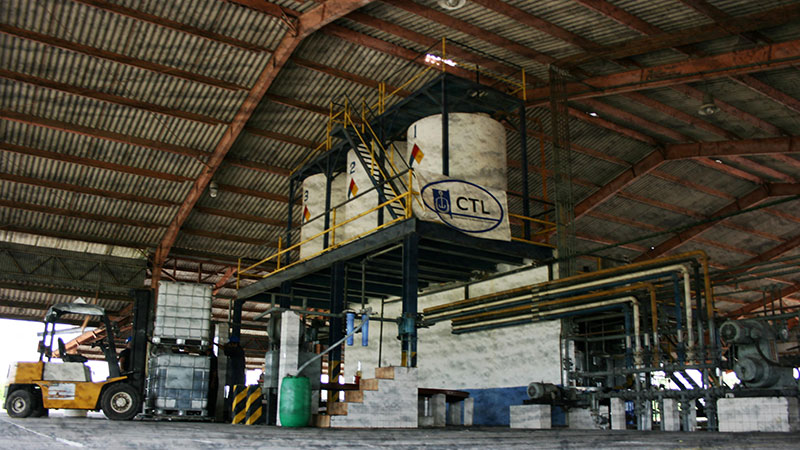Dow AgroSciences Execs: “Extremely High” Interest in New 2,4-D Cropping System
One of the world’s oldest and most widely used herbicides, 2,4-D, is playing an increasingly important role in broadleaf weed control globally as resistance to glyphosate accelerates.
With Dow AgroSciences’ anticipated blockbuster Enlist nearing commercialization for corn, 2,4-D is being positioned with a wider window of herbicide application as a key component with glyphosate in a broader weed management approach.
“The interest among farmers is extremely high. They need this technology now,” Joe Vertin, Dow’s Global Business Leader for Enlist, said in an interview.
Dow’s bet is that the diversity of novel traits and modes of action within the Enlist weed control system, coupled with a rock-solid stewardship program, will provide growers with a long-term tool to help outsmart glyphosate-resistant weeds, which are increasing at a rate of 25% annually in the US, according to third-party grower surveys.
The Enlist Weed Control System provides robust tolerance to be stacked with glyphosate – in corn, with 2,4-D and FOP herbicides (less commonly known as aryloxyphenoxy propionates) – and, in soybeans and cotton, with 2,4-D and glufosinate.
Dow estimates the market value for Enlist at about $1 billion, double that of its SmartStax genetically modified corn seed, according to Vertin.
Dow plans to sell Enlist in Canada as well as Brazil and Argentina, where resistance issues are escalating. On a visit to Latin America in December, Dr. Mark Peterson, Dow’s Global Biology Leader for Enlist, saw concern over glyphosate-resistant weeds “growing at an exponential pace. Field after field is having problems with a weed much like our marestail in the US.” The Enlist system attacks resistance issues via multiple modes of action and stewardship tools, he says. “Resistance is always a concern – that’s part of the reason we have stewardship, to make sure people don’t just forget about it. Stewardship is certainly going to be essential in addressing the issue. However, we can’t just say, ‘The problem is solved; I can forget about it.’ We still need to incorporate best weed management practices.”
Not surprisingly, the road to bringing Enlist to market has not been entirely smooth. Bayer CropScience filed three lawsuits against the chemical giant for patent infringement, none of which have been resolved, and Dow claims all are without merit. The company has also battled an onslaught of negative social media and press from anti-biotech/environmental activist groups such as the Center for Food Safety, which is lobbying the US government to stop the product’s deregulation. The group has branded Enlist “Agent Orange corn” and cited decades-old controversies involving 2,4-D – even though current uses of the herbicide were judged by EPA in 2005 to pose “a reasonable certainty of no harm.”
Many critics charge, too, that Enlist is little more than a quick fix to glyphosate resistance. Dow counters that its new product is not intended as a silver bullet, but as a new technology that is urgently needed and without it, weed resistance issues are rapidly getting worse.
In February, USDA extended the public comment period for the Enlist herbicide-tolerant corn trait by two months. Dow’s timetable remains unchanged, however. Pending regulatory approvals, it targets a launch for corn in the 2013 crop year, followed by soybeans in 2015 and cotton in 2016.
A group of forward-thinking scientists at Dow pinpointed the budding glyphosate resistance problem in 2002, and immediately started formulating possible solutions, Peterson says. The solution they eventually arrived at, of course, was the 2,4-D-based Enlist. They watched as the evidence continued to bear out their hypothesis.
Peterson refutes the suggestion that Dow’s latest innovation will, at some point, face the same troubles as glyphosate. “The problem with the question, ‘When are we going to see resistance to Enlist?’ is that Enlist is not a single herbicide, it’s a system,” he says. “A lot of that is driven by the mentality created by current glyphosate-tolerant crops where a single active ingredient has been used on over 90-plus percent of acres over and over. Obviously, the industry, growers and weed science learned a lot from that experience of glyphosate overuse, that it’s not the way things need to be done,” he continues.
Vertin points out that neither is Enlist a singular replacement for glyphosate, nor the next Roundup. Conversely, it was designed to build upon the glyphosate system: “We tried to design it to bring the same benefits that the growers have seen in glyphosate. Our objective is to bring it forward,” he explains. “We’re going to use an integrated systems approach that, coupled with stewardship, will make the herbicide-tolerant cropping system sustainable again.”





